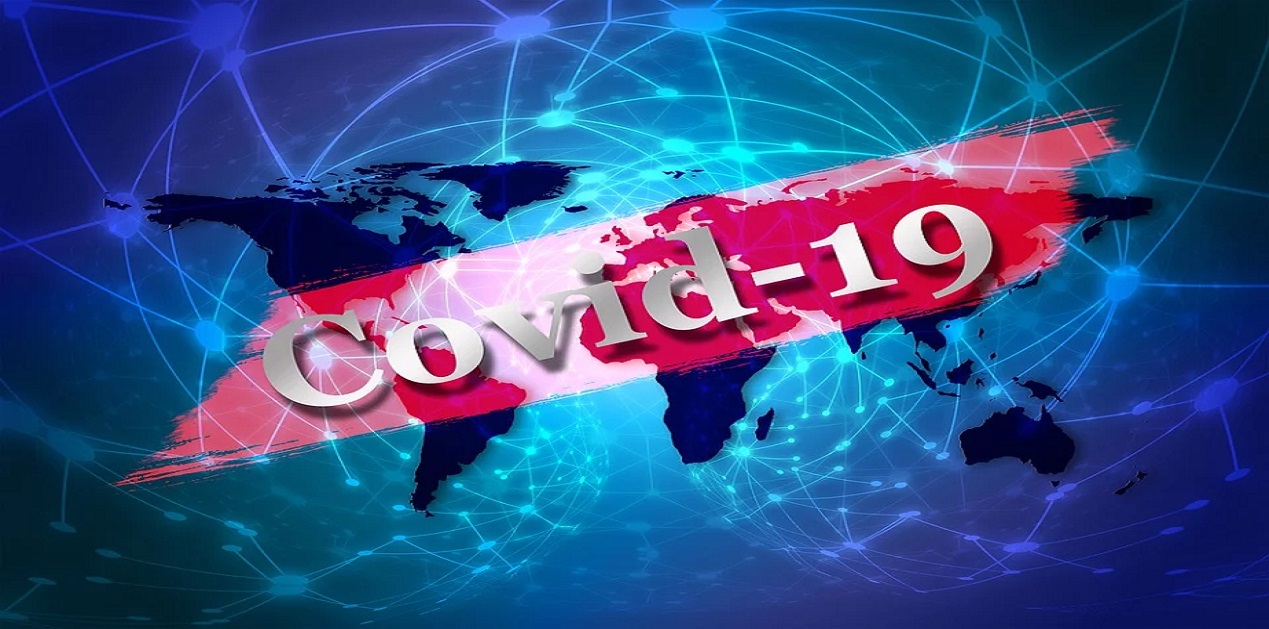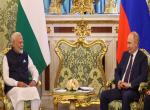The World Health Organisation (WHO) Director-General has praised China for its handling of the crisis and for “protecting the rest of the world”. The outbreak of the Coronavirus (COVID-19) is the biggest diplomatic challenge for China in recent times. At the initial stage, the Chinese leaders tried to downplay the growing effect of the coronavirus showing reluctance on their side. The local administration of Wuhan had been secretive about the spread of the virus. The Chinese leadership has been reticent to share the details and the intensity of the epidemic. Once the epidemic blew out of proportion they tried to minimize the global effect. Since 3 February 2020 meeting, Xi Jinping has become proactive in his handling of the COVID-19. He has used the Mao-style social control measures across the country1. Yet, the Chinese government is worried about the effect of the virus on the Chinese economy which in turn may affect the status and power of Xi Jinping. 2
China has already cancelled its two sessions; annual plenary sessions of the National People’s Congress and the National Committee of the Chinese People’s Political consultative conference demonstrating the growing disquiet within the party.3 Following the 3 February 2020 meeting, the second meeting of 170,000 officials, officials from the political bureau of CPC Central Committee of county-level, party officials and military officials was held on 23 February 2020 . In the meeting, he instructed the officials to work diligently and urged the entire Chinese society to work towards the containment of the COVID-19. A meeting of such a large scale, highlights the urgency that Xi Jinping is attaching to the epidemic.4 Again, On 26 February 2020, yet another meeting of the Standing Committee of the Political Bureau of the CPC Central Committee on the prevention and controls of the COVID 19 was held.5 The three meetings of the top echelons of China in a month exemplify Xi Jinping’s concern and his anxiety to slow down the expansion of a virus. 6
China has been extra conscious of any negative coverage of the epidemic. On 3 February 2020, the Wall Street Journal (censored in China) published an op-ed with the title “China is the real sick man of Asia”. The Chinese Ministry of Foreign Affairs said the headline of the article “hurts the feelings of the Chinese people”. The Chinese authorities have revoked the press credentials of three reporters (Josh Chin, Chao Deng and Philip Wen of WSJ). It was the first-ever expulsion of the foreign journalist since1998. Further, an editorial in the Global Times, brought out how the US has been biased toward the Chinese Journalist over sometime. 7
They are extra conscious that no country should score a brownie point against China. Many countries including the US have imposed travelling restrictions to China. The People’s Daily published an article stating, “Such dark mentality and dangerous practices go against not only the U.S. claim of “strong leadership”, but also the bottom line of human civilization.” 8 The spokesperson of the Chinese Ministry of Foreign Affairs said that “this will only create and spread fear, which is a very bad example”. He highlighted that Canada will not follow the US lines and impose travel restrictions. Further, he cited the CDC report and said: “the US flu from 2019 to 2020 has caused 19 million infection cases and at least 10, 000 deaths” 9
The spokesperson of the Chinese Ministry of Foreign Affairs, has been proactive in his briefing and projecting a positive image of China. He stated that since February 1, cured cases began to outnumber deaths. “Fear is more horrible and infectious than the virus”, “virus knows no border”, “the epidemic is temporary but cooperation lasts”. Further, he highlighted, that the 2009 H1N1 flu had a mortality rate of 17.4 per cent and the mortality rate of MERS of 2012 was 34.4 per cent and that of Ebola was 40.4 per cent. With China’s relentless efforts, the 2019-n CoV mortality rate in China is about 2.1 per cent much lower than the figures above.” 10
Although the Chinese government is trying to downplay the number, the numbers of infected patients and dead are continuing to rise. According to the National Health Commission of China, as of 27 February 2020, there were 78, 824 confirmed cases and 2788 deaths in 31 provincial-level. On the contrary, the South China Morning Post states a total number of infected cases 83,265 and 2,858 deaths, as of 28 February. The virus has extended across the globe from South Korea, Iran (16 Deaths), Italy (323 infections and 11 deaths), Algeria (1 death), Egypt and South Africa.
Coronavirus and the Chinese Foreign Policy
In his New Year Speech, Xi Jinping had spelt out that the year 2020 is very crucial for China to achieve “a moderately prosperous society in all respect”. He talked about elevating Chinese citizen above the poverty line but failed to predict the impending health risk from the Coronavirus. On the contrary, by then the virus had already spread across Wuhan.
Once the epidemic had blown out of proportion, China stressed the aspect of cooperation in dealing with the epidemic. The spokesperson stressed on the fact that China “discounts the beggar thy –neighbour” approach or overreactions, China is emphasizing on the aspect of cooperation. 11 Subsequently, the People’s Daily published an article highlighting the positive attitude of the countries that stood by China during this time and elucidated that the countries that treat their neighbours as threats will also “hurt not only the interests of the world but also those of their own”. 12
The outbreak of COVID-19 also witnessed the cementing of China-Southeast Asia relations. Cambodia allowed the cruise ship, MS Westerdam, to dock after it was not allowed to dock at the other ports. On 19 February 2020, Wang Yi met ASEAN Sectary General, Philippine and Singaporean Foreign Ministers to discuss the joint combat against the novel coronavirus. This was the first multilateral foreign ministers meeting focusing on public health security in the region. Yet another parallel meeting was held through video conference of the clinical specialist on therapeutic and treatment experience.
Wang Yi participated in the Munich Security Conference and expounded on China’s effort to deal with the epidemic. He called for crossing East-West difference and practicing multilateralism. He also reinstated confidence in Chinese economy. He added that the epidemic had made mankind realize that it is now an era with traditional and non-traditional security threats being interwoven. He emphasized on the fact as to how regional issues get converted into global. Hence all countries are inter-connected and share a common destiny.
In the last two months, the Chinese leaders have time and again, reinstated confidence in the Chinese Economy. The National Development Reforms Commission has claimed that the outbreak will have “temporary and limited economic effects and will not leave a permanent mark on the Chinese economy. China considers that the economic fundamentals that back China’s long-term growth will remain unchanged and they are capable of minimizing the impact of the epidemics on the economy. The IMF and World Bank have indicated that China has enough policy space to deal with the epidemic and China’s efforts have successfully reduced the risks the world economy may be exposed to. 13
The spread of the coronavirus has reached a critical juncture and the onus is now on Xi Jinping as to how he projects the image of China. Xi Jinping is trying to shield himself and the country from any negative publicity either by cohesion or coercion.
Endnotes
- https://www.nytimes.com/2020/02/15/business/china-coronavirus-lockdown.html
- https://www.nytimes.com/2020/02/17/world/asia/china-coronavirus-congress-postpone.html
- http://www.chinadaily.com.cn/a/202002/18/WS5e4ae840a3101282172782e2.html
- https://www.globaltimes.cn/content/1180504.shtml
- http://www.xinhuanet.com/english/2020-02/26/c_138821718.htm
- https://www.bloomberg.com/news/articles/2020-02-24/china-s-xi-sounds-alarm-over-virus-outbreak-at-party-s-doorstep
- https://www.globaltimes.cn/content/1180787.shtml
- http://en.people.cn/n3/2020/0219/c98649-9659497.html
- https://www.fmprc.gov.cn/mfa_eng/xwfw_665399/s2510_665401/2511_665403/t1739548.shtml
- https://www.fmprc.gov.cn/mfa_eng/xwfw_665399/s2510_665401/2511_665403/t1740929.shtml
- https://www.fmprc.gov.cn/mfa_eng/xwfw_665399/s2510_665401/2511_665403/t1743480.shtml
- http://en.people.cn/n3/2020/0224/c90000-9661124.html
- https://www.fmprc.gov.cn/mfa_eng/xwfw_665399/s2510_665401/2511_665403/t1743480.shtml
(The paper is the author’s individual scholastic articulation. The author certifies that the article/paper is original in content, unpublished and it has not been submitted for publication/web upload elsewhere, and that the facts and figures quoted are duly referenced, as needed, and are believed to be correct). (The paper does not necessarily represent the organisational stance... More >>
Image Source: https://cdn.pixabay.com/photo/2020/02/27/14/35/connection-4884862_960_720.jpg










Post new comment